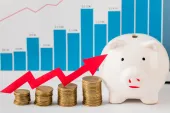Greater Bay Area’s development boosts HK competitiveness
Hong Kong is in a unique position to enhance its role as an offshore renminbi service hub.
As the Guangdong-Hong Kong-Macau Greater Bay Area (GBA) continues to evolve, Hong Kong is poised to further cement its status as an international financial hub.
Thomas Chak, Co-head of Capital Markets & Investment Services at Colliers, said that Hong Kong is leveraging the strengths of the GBA cities like Shenzhen's advancements in the IoT industry, which is expected to spur economic development.
“Hong Kong can also serve as a platform of investment and finance to mainland firms and can develop green finance and fintech business. We can also cooperate with other GBA cities in economic developments,” he said.
The investment landscape in Hong Kong has been influenced by global economic trends, particularly the fluctuations in interest rates. Chak noted a slowdown in investment activities, largely attributed to the hike in interest rates through 2022 into 2023.
However, with rates anticipated to decrease in the latter half of the year, there is optimism for renewed investor engagement. The potential for capital to shift from time deposits to more active investment signifies a market poised for growth.
According to Chak, factors such as the recovery of the Chinese economy, the USD peg of Hong Kong's currency, and the Federal Reserve's interest rate decisions are critical. The Hong Kong government's efforts to attract capital and talent through policy initiatives are starting to bear fruit, signaling a recovery trajectory for the property investment sector.
Looking ahead, Chak characterizes the immediate future of Hong Kong's investment landscape as "interesting," with the property market in particular expected to see significant activity.
“On one hand, capital is waiting to come out from time deposits overseas. And also on the other hand, we are seeing some distressed properties coming into the market, so it's going to be an interesting year,” he said.
Last year's subdued transaction volume sets the stage for a rebound, fueled by the anticipated easing of interest rates and the presence of distressed properties in the market. This environment is ripe for investors seeking to capitalize on emerging opportunities, indicating a potential uptick in transactions relative to the previous years.



















 Advertise
Advertise






